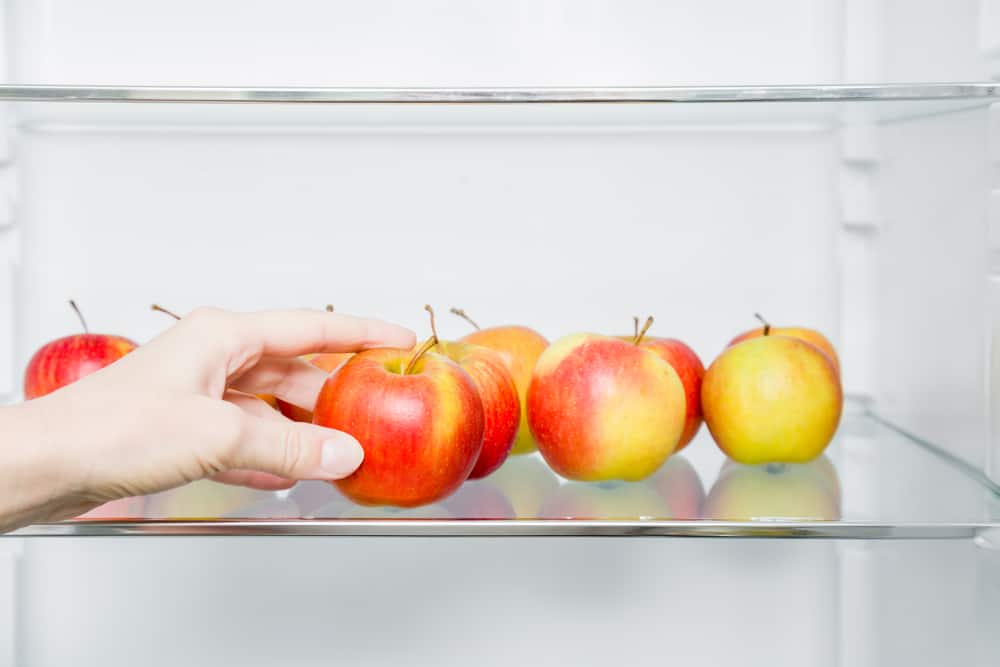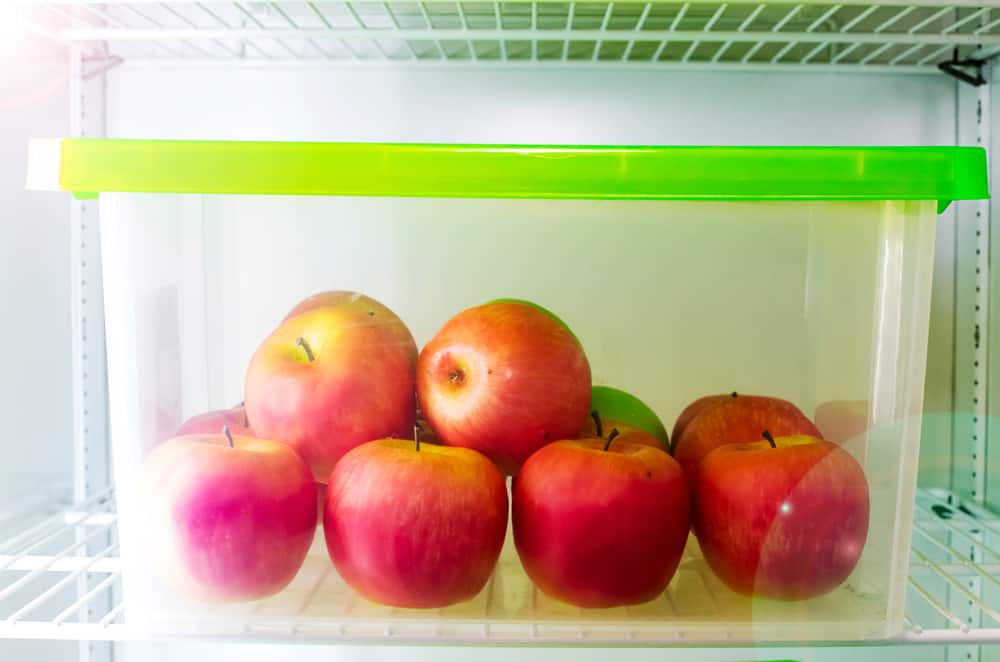
There is nothing better than a homegrown apple, fresh from the tree. As everyone knows, apple trees produce copious amounts of fruits, which can be hard to eat before they go off.
With the correct storage, they will keep for extended periods. Here are our top tips for apple storage, helping to keep them fresher for longer.
Table of Contents
When are apples in season?
There are a few varieties of apples, which ripen and need picking at differing times. The season for apples ranges from late August to early November.
Early season apples are often harvested from the end of August through September. These are not very suitable for storage and tend to be eaten within two weeks of being harvested. These include varieties such as Worcester Pearmain and Beauty of Bath.
Mid-season apples are harvested between September and early October. These will keep for between 2 and 3 weeks with correct storage. Alternatively, you can leave them on the tree to ripen for longer and eat them as you pick.
Late season apples tend to be picked from mid-October through November. They can be stored for the longest, maybe even lasting for a month or two. In exceptional circumstances, they can even keep for up to 1 year!
Good examples of late-season apples include Fuji, Granny Smith, Braeburn, Gala, and Golden Delicious. Spartan and Cortland apples do not store well despite their late-season bloom.
How to store apples short term
Apples need a cold yet humid environment to survive. If you live in a dry climate, you can use a spray bottle to lightly mist the surface of the apples with water.
The optimal storage conditions for apples are a temperature of 32 degrees Fahrenheit and a 90% humidity. They should also be stored in the dark.
They should be stored away from other fruits and vegetables. This is because apples release a gas known as ethylene. This acts as a ripening agent for other produce. If you store apples near to other fruits and vegetables then they will go off faster.
We recommend storing apples in the vegetable crisper drawer of the refrigerator. This really extends their shelf life but it means that you are unable to store other produce in there which can be inconvenient.
We also recommend storing apples in groups of 5 to 10 in polythene bags. Make a few air holes in the bag to improve your air circulation and negate the impact of the dry air found in the refrigerator.
Where should you store apples?

Traditionally, apples were stored in a root cellar. This is a dark and cold room with a high level of humidity, designed for storing produce. Many homes no longer have one of these, but modern homes have other areas that would be suitable.
Most homes will have a room that is naturally colder than the others. This will not allow the apples to keep for as long but is likely the best option in a pinch
If you live in a cooler climate, you could consider storing the apples on your front porch. You should only do this if you have the ability to shut off your porch to prevent wildlife from getting into your produce.
You should ensure the temperatures are not going to drop to freezing, and that the apples will not be in the path of direct sunlight.
Unheated garages are another good place to store apples. Again, this only works if the temperature is above freezing. If you live in cooler climates, you should only store apples in a garage attached to your home.
This means that the central heating from your home will warm the garage.
Unheated basements are another good storage location for apples. Heated basements with a ventilation system may also be cool enough for storage. If you are living in a dry climate then it may be wise to occasionally spritz the apples with water.
How to store apples for the winter
If you are planning on storing your apples for an extended period you will need to take some extra steps to prepare them.
The apples that you choose should be in as close to perfect condition as possible. Bruised and blemished apples are by no means unsuitable for eating, but they will not keep anywhere near as well.
This is where the phrase “one bad apple spoils the whole bunch” comes from. One damaged apple can quickly spoil and contaminate the whole bushel.
If possible, pick apples with the stalk still attached. This will help them to keep for slightly longer. Wash each apple thoroughly before placing them in storage.
You should wrap each apple individually to ensure they do not come into contact with each other. We recommend wrapping them in a sheet of newspaper, but you should ensure that the ink is non-toxic and preferably soy-based.
Other alternatives include brown paper bags, paper towels, or butcher paper. You could also place them inside a sawdust, sand, or straw-filled crate.
After you have individually wrapped your apples, layer them carefully in a wooden or cardboard box. Be very gentle with them as you do not want them to bruise.
We suggest not placing them inside a large box as this could be difficult when it comes to checking the apples for perishing. It is easier to check and sort through smaller boxes.
You could even consider purchasing a designated apple storage rack if you store apples regularly.
Place the filled box or rack inside your designated storage location. You should check them regularly and remove any that appear to be going off. Transfer any you will be eating to the refrigerator and eat them as you please.
Generally speaking, smaller apples will keep for longer than the larger versions. You should eat the bigger apples first.
Do not attempt to store apples that have fallen off the tree rather than being picked. These are overripe and will not keep well for that long.